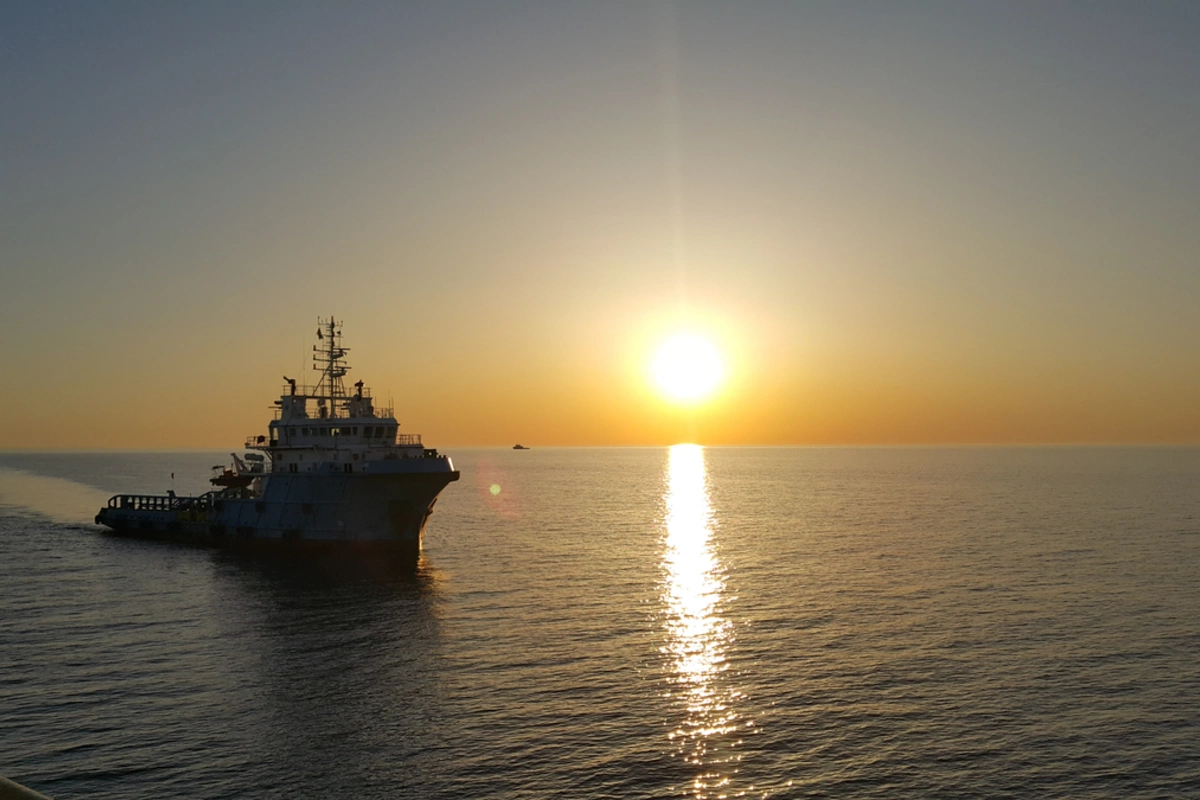
Turkmenistan should be a leading transit nation, but its potential is cramped by bureaucratic failings.
Image: Fakhrurrazi Ibrahim/Shutterstock
(Eurasianet) Later this month, senior representatives of Central Asian governments and European Union peers will meet in Brussels for an Investors Forum for EU-Central Asia Transport Connectivity.
At the January 12 Cabinet meeting, Mammetkhan Chakiyev, the head of Turkmenistan’s state agency for transport and communications, delivered a briefing on ongoing preparations for the event. President Serdar Berdymukhamedov stressed that he sees the forum as an opportunity to tout the investment appeal of the country’s transport sector.
An EU-commissioned study on sustainable transport corridors between the EU and Central Asia, however, highlights how much more needs to be done before Turkmenistan can contribute usefully to the agenda.
The opportunities are theoretically considerable.
Modernization of the Turkmenbashi port, completed in 2018, should have put the country in pole position to exploit the potential of growing cargo traffic across the Caspian Sea. With European officials talking up the usefulness of the Middle Corridor route as a backup alternative to Russia, this is very much of the moment. As things stand, though, Turkmenbashi is playing second fiddle to ports further to the north, in Kazakhstan.
In an article for state media in September, Chakiyev volunteered a panoramic oversight of a whole lot of other projects that should make a transit champion of Turkmenistan. Construction of a number of railway routes — namely, Uzen-Bereket-Gorgan, Kerki-Ymamnazar-Akina, Ashgabat-Dashoguz and Zerger-Kerk — have contributed to an increase in international freight traffic passing through, he said. A similar logic underlies the acquisition high-power diesel locomotives from China and Russia.
Leaving aside the trifling matter of suspect practices in the doling out of contracts, there is important work being done on highways too. The 600-kilometer, north-south, Ashgabat-Turkmenabat route, once completed, will be a valuable channel for Turkmenistan and its neighbors to the Caucasus, Europe, Iran and Persian Gulf nations.
A fly in this particular ointment, however, is the disruption that is being caused to motorists struggling to use this particular route at present. As Amsterdam-based Turmken.news reported on January 10, cars are forced to negotiate giant potholes created by heavily laden dump trucks. In late December, a couple in the Lebap province was killed after they swerved to avoid a hole and veered into the path of an intercity bus. And as Turmken.news observes, the highway should have been put into operation already, but work has been held up because of funding issues.
Perhaps better things can be expected of another ongoing major project to build a highway from the city of Garabogaz along the shores of the Caspian Sea to the border of Kazakhstan.
Where Turkmenistan is really lagging is in implementing what the EU report terms “soft connectivity measures.”
“Visa requirements for drivers remain a significant barrier to trade, as do additional requirements for specific imports,” the report notes. “The relaxation of such measures would lower transaction costs for users of the network and help the country’s network become part of regional trade corridors.”
Turkmenistan has been sluggish in moving to paperless trade. While the country has acceded to the system of electronic waybills known as e-CMR, it “needs to take steps towards implementation.” There is a simple reason rank-and-file border management personnel may resist such initiatives: they reduce opportunities for kickbacks. And as independent media have reported, things inspected by Turkmen customs officials have a habit of vanishing.
Overbearing state involvement in all aspects of the trade chain is another cited problem. All Central Asian countries apart from Turkmenistan have adopted some kind of public-private partnership framework, which can offer benefits in efficiency and savings. For all the government’s vaunted aspirations to transform Turkmenistan into a market economy, state control over things like railway tariff-setting remains in place.
As the EU report notes, Turkmenistan “would benefit from the introduction of market-reflective tariffs and the frequent reassessment of tariff levels, as well as the consistent implementation of tariffs.”
Turkmenistan is making progress improving its air connectivity at least. In addition to the new Ashgabat-Milan and Ashgabat-Ho Chi Minh City routes reported earlier this month, Turkmenistan Airlines is poised to offer scheduled flights to Jeddah and Kuala Lumpur, state media reported on January 12.
Many people are choosing to leave Turkmenistan forever. The government of Kazakhstan released data on January 15 showing that more than 21,000 ethnic Kazakhs had migrated to their native land in 2023. Out of that total, 6.8 percent, more than 1,400 people, arrived from Turkmenistan.
There is no immediate evidence that the three-way Azerbaijan-Iran-Turkmenistan natural gas swap, which was put on hold earlier this month, is going to return. An unnamed and hazily described source in Azerbaijan’s oil and gas industry has told Interfax-Azerbaijan news agency that Baku is able to do without imports from Turkmenistan this year even if the deal is not revived.
“Considering the fact that in 2024 a significant increase in the volume of commercial gas supplies on the domestic market is expected in Azerbaijan — primarily from the Umid and Absheron gas condensate fields — the need to import gas from Turkmenistan may no longer be necessary,” the source told Interfax-Azerbaijan.
Other options remain on the table for Turkmenistan. Turkey has latterly been exploring prospects for a similar swap deal involving Iran.
That idea was given tacit blessing last week by the U.S. ambassador to Turkmenistan, Matthew Klimow, who said at a press conference last week that swap deals involving Iran did not, as far as Washington is concerned, violate any sanctions.
“It will depend on how the deal is structured,” Klimow was quoted as saying in remarks translated into Russian by Interfax-Azerbaijan.
The ambassador also returned to the idea of reviving the trans-Caspian gas pipeline project, which he reportedly described as being a relatively uncomplicated proposition from an engineering perspective.
Share on social media